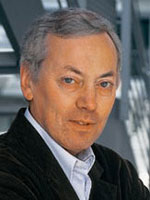Note: an audio version of this interview was broadcast by the WGBH affiliate WCAI, the Cape and Islands NPR station, and by KPIP in Missouri.
The forests of New England are, remarkably, a success story. They’ve recovered from attack after attack. The early settlers hacked them down, by hand, for houses, fences and firewood. Later on, the insatiable sawmills of a more industrial age ate up the lumber needed for our expansion.
Today, the forests contend with acid rain, invasive plants and exotic beetle infestations — evidence of our ever more global economy. And the future of these forests? Going forward, that’s a story that’s largely ours to shape, and narrate.
If only these trees could talk … Well, we have the next best thing – Donald Pfister, the Dean of Harvard Summer School, curator of the Farlow Library and Herbarium, a fungologist (the more erudite word is mycologist), and the Asa Gray Professor of Systematic Botany at Harvard University.
In this Faculty Insight interview, produced in partnership with ThoughtCast and Harvard Extension School, he tells the tale of the New England forest from as far back as the glacial Pleistocene era.
To help illustrate this tale, we’ve made grateful use of high resolution images of some dramatic landscape dioramas, which are on display at Harvard’s Fisher Museum, in Petersham, Massachusetts.
And finally, for an audio version of this story, click here:  to listen (9:47 mins).
to listen (9:47 mins).
Podcast: Play in new window | Download
Subscribe: RSS

 Want to know how the world is going to end? Just ask Russian cosmologist
Want to know how the world is going to end? Just ask Russian cosmologist 

